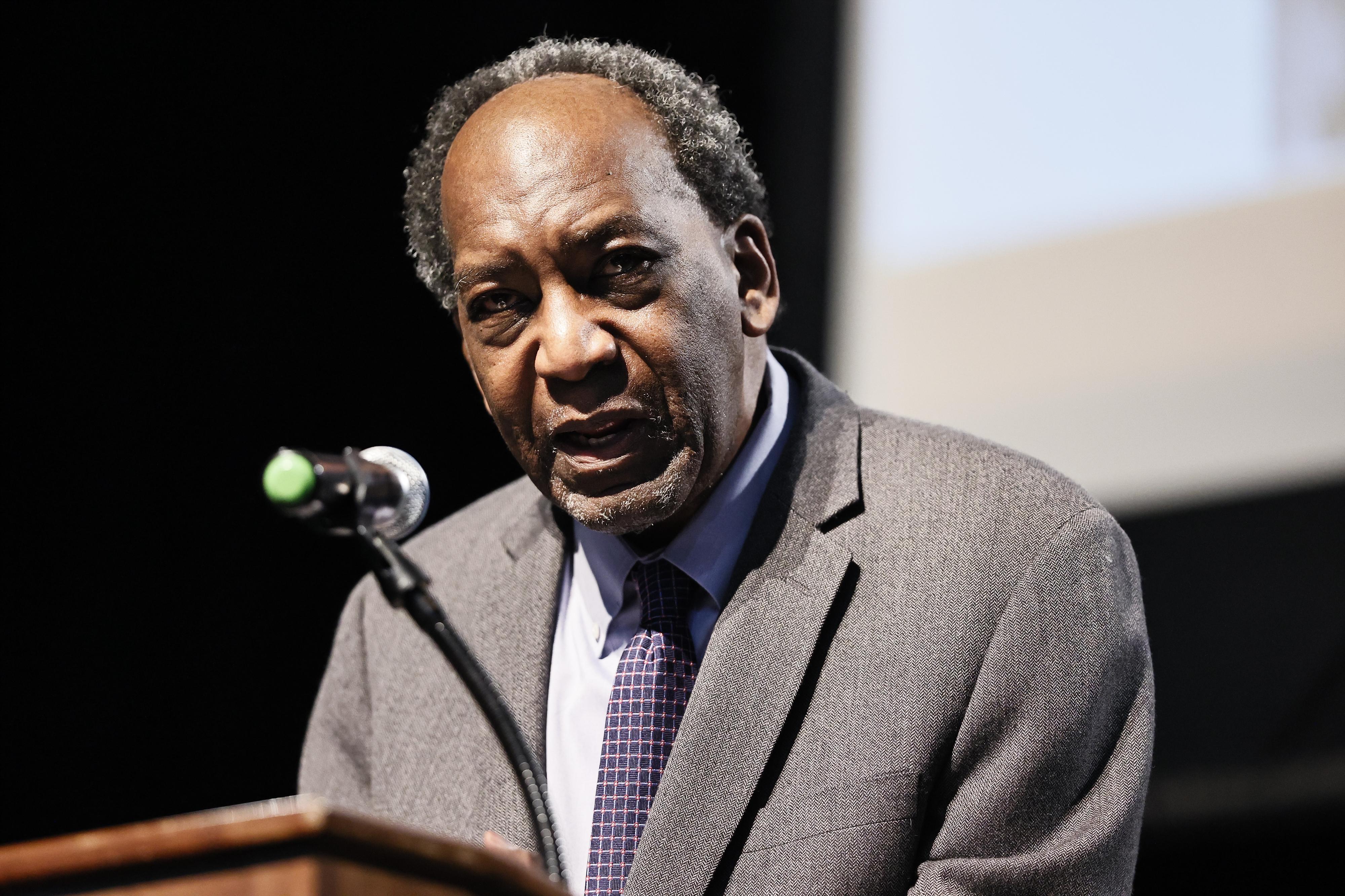The event’s keynote speaker was Charles M. Payne, a professor of African American studies at Rutgers University Newark and author of the book “I’ve Got the Light of Freedom: The Organizing Tradition and the Mississippi Freedom Struggle.”
Payne began his speech noting the contrast he sees between King’s legacy and the country’s current political climate.
“The history we are here to celebrate is being undermined in a very, very systematic, deliberate and coldblooded way,” Payne said. “It's hard to not despair. When you think about some of the things that are likely to be happening to the vulnerable Americans, to the poor Americans, to the young Americans, the old Americans. It's hard to not despair.”
Payne says people can draw inspiration from the example set by people like Vernon Dahmer, who was an American civil rights movement leader from Hattiesburg who urged African-Americans to register to vote.
“There were 12 black people (in Hattiesburg) who were registered to vote,” Payne said. “I didn't say 12%. I said there were 12 black people who were registered to vote. He himself first attempted to register around 1949. When he was refused, he led a group of his friends to sue the sheriff of Hattiesburg.”
Dahmer died in 1966, shortly after members of the Ku Klux Klan firebombed his home.
“It's important to be inspired by these stories,” he said. “Don't be intimidated by them. Don't think that in order to do something that's significant, you've got to face down the Klan, you've got to get major legislation passed. It's important to realize that whatever you can do matters.”
Payne says Civil Rights leaders such as Dahmer and King helped improve life for a large number of people.
“Those of you who are from the south, White or Black, are the heirs to a heroic tradition,” he said. “It is a tradition that broadened American democracy for everybody.”
Dozens of JSU students were in attendance. Computer Science sophomore Zachari Pittman said the event was a good learning experience.
“As a resident of Jackson, Mississippi, it actually opened my eyes to something new, because I didn't know the information,” he said. “I'm kind of grateful that I came here.”
Healthcare Administration sophomore Jha’Nea Shelby said she was inspired by what she learned.
“I didn't know what to expect when I was first coming in here, but as I sat down and I listened to it, increasingly, I learned some new things about Vernon Dahmer and his family,” she said. “It was really sad what happened, but also inspirational because even on his deathbed, he still fought for our rights and encouraged us to fight for our rights.”
Sophomore Gianna Hawkins, who is a Biology/Pre-Med major, says Payne’s message of trying to make even small changes resonated with her.
“I'm not interested in being a politician or anything so I always think, what can I do,” she said. “But like he said, you just have to see a problem and bring people together so you all can start to chip away at it instead of having to be Martin Luther King. ”
This year marks what would have been Dr. King’s 96th birthday.




